Joel and Rui discuss some of Joel’s views on adapting to life in Portugal, from the lack of “real salads” to the differences in work culture.
Desafios da Burocracia
Challenges of Bureaucracy
Comer Fora ou Mandar Vir?
Dining Out or Ordering In?
Do you prefer dining out or ordering in? Join us for a conversation about food, drinks, and dining in Portugal, with a special appearance from Rui’s mom who shares a story about the ultimate Portuguese food faux pas.
Ninguém Quer Esparguete Doce
Nobody Wants Sweet Spaghetti
‘Tis the season… to spread misinformation about the origins of Christmas and Santa Claus! In this special holiday episode, Rui and Joel explore the food and other traditions of Christmas in Portugal, while featuring one of our latest Shorties, “a Consoada“. Boas festas a todos! 🎄
As Senhoras Que Bebem Cerveja
Ladies Who Drink Beer
In this episode, we deconstruct one of our latest “Shorties”. We go through some useful food vocabulary, discuss verb and tense choices, and Rui irons out Joel and Molly’s “estrangeiro” pronunciation! There’s also some exciting news about Practice Portuguese, especially for those of you who might be in the Algarve next weekend.
À Caça de Descontos no Supermercado
The Hunt for Supermarket Discounts
To prepare for an upcoming birthday party that they’ll be hosting, a modern grandma and her jokester husband stock up on groceries at the local supermarket. While taking advantage of every promotion they can, will they actually remember to pick up everything they went there for in the first place?
Uma Ida Ao Supermercado
A Trip to the Supermarket
While making her way through her lengthy shopping list (containing useful food vocabulary, of course), Sra. Rosa shares her elderly wisdom with a young employee who is eager to help.
Special Guest: Eliana Silva
Um Natal de Crescer Água na Boca
A Mouth-watering Christmas
This holiday season, a Practice Portuguese TV reporter takes to the streets to hear directly from Portuguese natives about their family Christmas traditions… until a particularly talkative woman steals the show!
As Sardinhas Que Fumavam
The Sardines That Smoked
Hoping for a calm, vegetarian dining experience at a local Portuguese restaurant, Sr. John gets thrown off guard by unprofessional service and a problem with his order! Find out how he deals with these challenges, and learn lots of vocabulary and expressions to use the next time you’re dining out.
A Tartaruga Ninja
The Ninja Turtle
Our fabulously fictional Portuguese family is back (with peculiarly different voices 😂) and this time, they’re considering adding a new member. We explore new vocabulary surrounding food, animals and more, and also run into some new usage examples of the conjunctive and conditional moods. And just like in the last episode, Rui continues to help Joel identify some more of his “estrangeiro” pronunciation habits!
Update (April 12, 2018): After launching this episode, it was helpfully pointed out to us that keeping a turtle as a pet is irresponsible: They die earlier in captivity and live a miserable, unnatural life. They’re part of our wildlife heritage and need their protected, natural habitat to thrive. Instead, consider adopting a cat or dog from a shelter – surprisingly, they’re less work, and you’ll be doing some good! More details here and here. (Obrigado, Joanna!)
A Mãe Está Doente e o Pai Cuida da Família
Mother Is Sick and Father Takes Care of the Family
Today, our fictional Portuguese family is subjected to some of the grammar you’ll find around the B2 Intermediate level, including the “conjuntivo” verb mood. Since the mother is sick, the father has to improvise with preparing dinner himself, all while taking care of the kids. Will it be as easy as he thinks, or will it all go “por água abaixo”?
Um Café em Lisboa
A Coffee in Lisbon
This episode is a collaboration featuring Tatiana Ribeiro, a Portuguese teacher (and fan of the project) from Brazil, currently living Italy! She recorded with us and also wrote the dialogue, which takes place in a café in Portugal.
Since we all know jokes are funnier after they’re explained in exhaustive detail, Rui and Joel discuss the key vocabulary and expressions used throughout. But rather than making it easy on you by switching to English, we decided to keep the entire conversation in Portuguese!
But don’t worry – For the first time ever, members using the podcast player on our website can now enable English translations at any point in this episode, to make sure you don’t miss a single “palavra”.
We’re excited to hear what you think!
Update, August 11, 2017: Shortly after launching this episode, we were invited on Tatiana’s radio show for an interview. We’ve released an edited version of this interview with transcript if you’d like to have a listen!
Pizza Na Hora Está a Contratar!
Pizza on Time is Hiring!
Márcio o Brasileiro calls in once again to everyone’s favourite Portuguese pizzeria, but this time to ask the owner for a job. Will they be able to overcome their cultural differences and work together? Have a listen and find out in this 3rd episode of Pizza Na Hora!
Natal e o Ano Novo
Christmas and the New Year
What could be better than a holiday episode in January? (Just about anything!)
Listen to find out what happened to Rui that delayed this episode… and be extra prepared for when the holidays come around again in about 355 days!
We also discuss some quirky traditions and superstitions that Portuguese natives take part in during the New Year. Feliz janeiro!
A Família Vai Ao Supermercado
The Family Goes to the Supermarket
Marco and Ana take their kids to the “supermercado”, giving us an opportunity to learn some new vocabulary surrounding food.
First, Rui reads the entire article all the way through, then Rui and Joel split the text into sections to discuss vocabulary, Portuguese culture, and useful expressions you’ll hear on a daily basis while in Portugal. Rui also corrects some of Joel’s “estrangeiro” pronunciation mistakes that you might be making too!
Um Dia na Praia
A Day on the Beach
Are you just starting to learn Portuguese? This episode is perfect for you! It is A1/A2 level with simple vocabulary and grammar, but read by a native speaker, so it’s ideal for all levels to practice their pronunciation and listening comprehension! In addition, whenever we comment on the text, we take the opportunity to teach some expressions and review grammar.
Tip: The article is first read with discussion in between, and then read full-speed in its entirety at 14:50.


 Joel
Joel Rui
Rui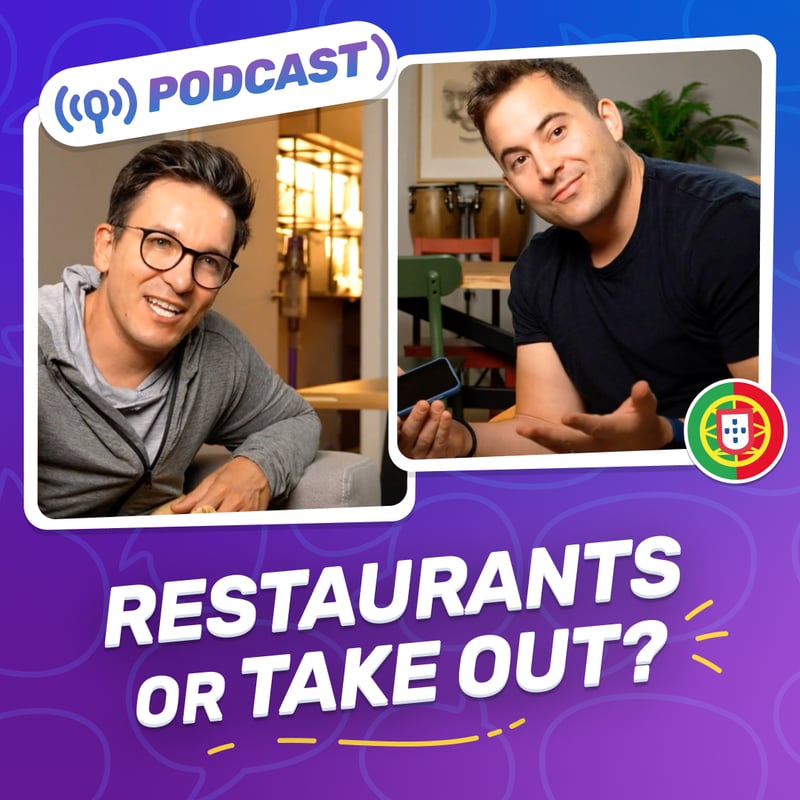
 Ana
Ana

 Molly
Molly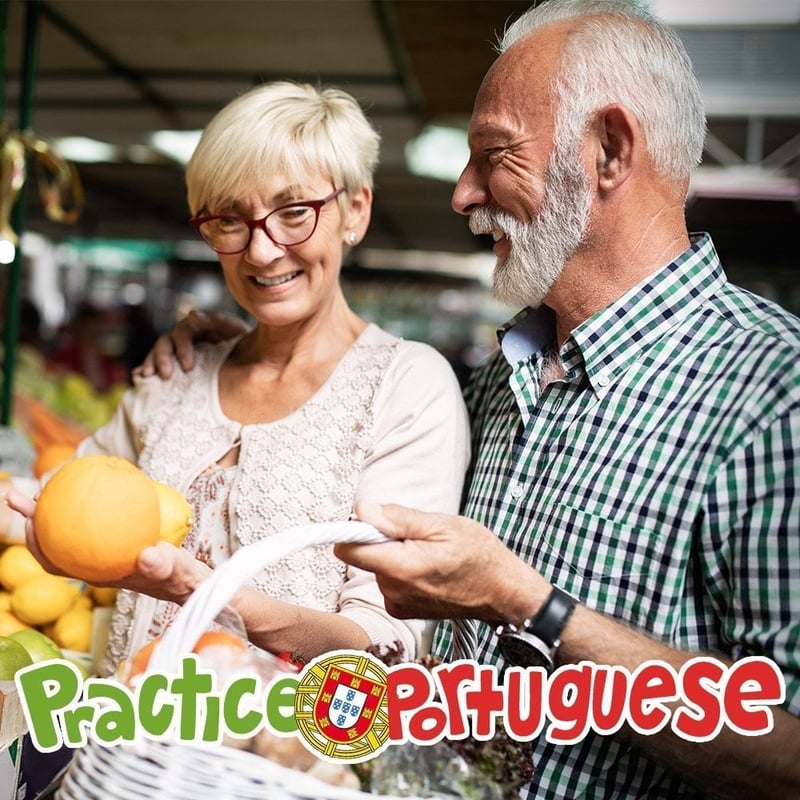
 Eliana
Eliana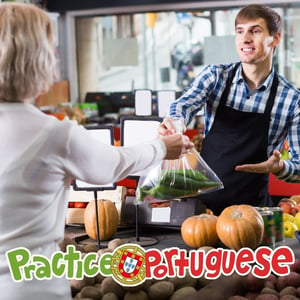

 Manuela
Manuela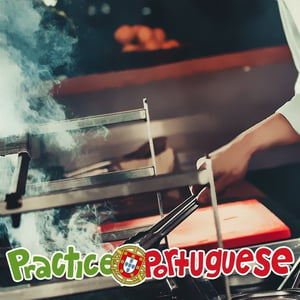
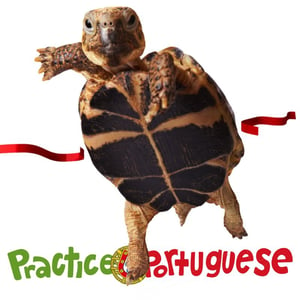
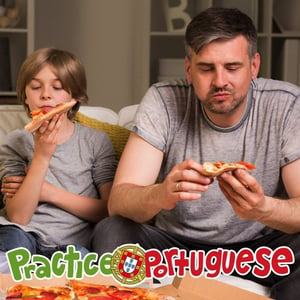
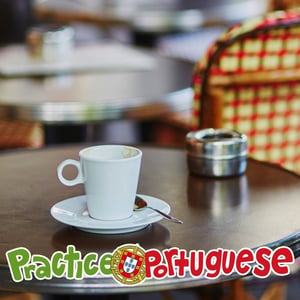
 Tatiana
Tatiana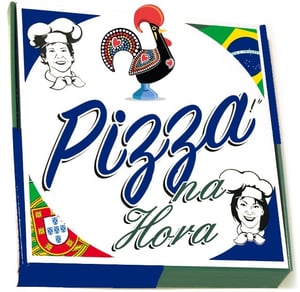
 Luís
Luís Márcio
Márcio

